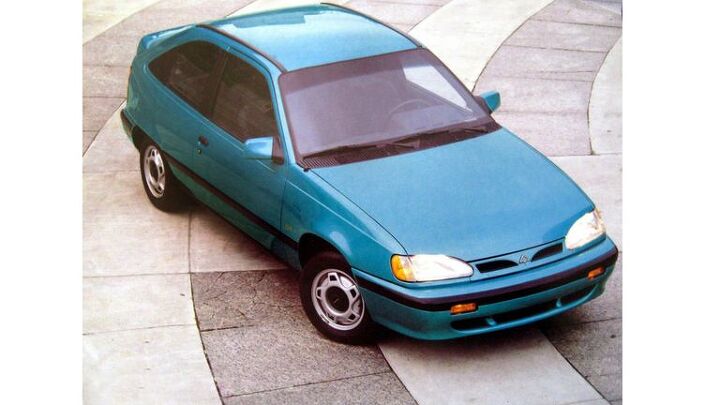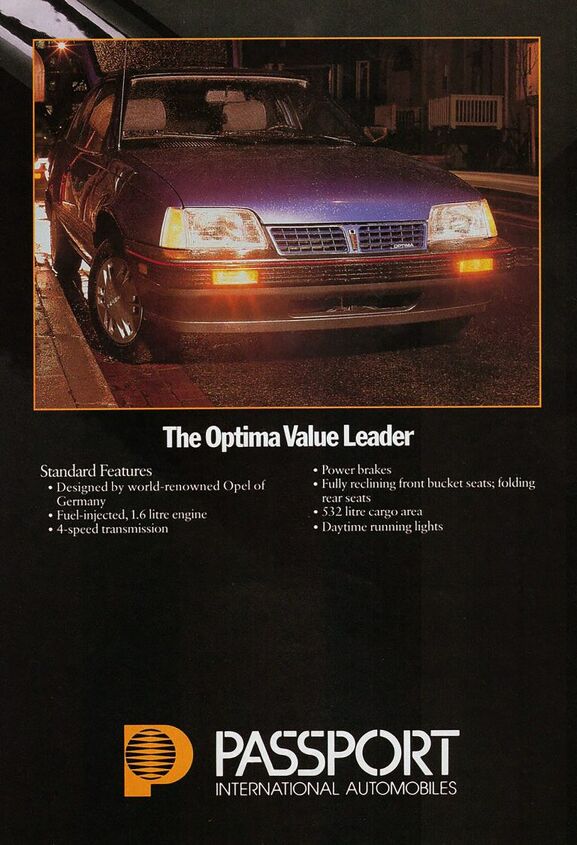#Assuna
Abandoned History: General Motors' Passport and Asna, Total Brand Confusion (Part II)
We started our coverage of GM’s Eighties and Nineties branding adventures last week, with the short-lived experiment that was Passport. The dealership network was an amalgamation of GM-owned or influenced brands from Japan, Sweden, and in the case of the Passport Optima, South Korea. Passport lasted from 1987 through 1991 before GM changed directions. In addition to axing an unsuccessful sales channel, Geo and Saturn cars had arrived during Passport’s tenure and made things more complicated. Let’s learn some more about GM’s Canadian dealership networks.
Abandoned History: General Motors' Passport and Asna, Total Brand Confusion (Part I)
In the Eighties and Nineties, General Motors of Canada decided to try new distribution strategies for its imported cars. Like in the recent Dodge Colt series, General Motors had its own captive import cars and trucks that were manufactured by other brands. But because of dealership arrangements in Canada, GM took things a step further than Chrysler and established a separate distribution network for its imported wares. The efforts lead to the thrilling Passport and Asüna brands for the Canadian market. First up, Passport.

















Recent Comments